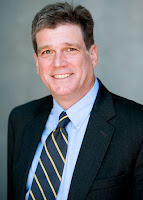By Professors Susan Smith Bakhshian and Stephanie Rae Williams
This op-ed appeared in the August 3, 2022 edition of the Los Angeles Daily Journal.
A non-exam pathway to licensure is long overdue in California.
This op-ed appeared in the August 3, 2022 edition of the Los Angeles Daily Journal.
A non-exam pathway to licensure is long overdue in California.
A non-exam pathway can provide public protection better than an exam. An exam is an excellent tool to ensure that the highly privileged, who can afford to study full-time without working and have few family demands, will continue to be licensed. An exam is an excellent tool to ensure that the bar prep industry continues to earn profits by selling courses and study materials. An exam is an excellent tool to maintain the status quo of a profession that fails to match the ethnic diversity of our state. An exam is an excellent tool for licensing attorneys in a bygone era by relying on memorization seldom used in practice – not skills actually used in ably representing clients.
The bar exam’s faults are legendary. Every California attorney convicted of misconduct passed the exam. And the practice of law has modernized while the exam clings to testing methods that do not differentiate the qualified from the unqualified. The exam tests antiquated doctrines that attorneys will never use under conditions attorneys never face. Nothing justifies testing common law principles that are inconsistent with California law. Yet the exam continues to do so, in a manufactured and unrealistic environment where bar takers cannot consult with other attorneys or mentors, perform legal research, or do any of the other real-life tasks our duty of competent representation demands. The exam assumes that California attorneys are general practitioners in over a dozen distinct practice areas. That era ended long ago with most attorneys limiting their practice today. And even those with more general practices do not offer services in every subject tested on the exam without a chance to educate themselves or associate with an expert before taking clients in unfamiliar areas of the law.
A non-exam pathway is a better way forward. As detailed below, with supervision and proper safeguards to ensure a reliable and valid assessment of educational requirements, California can move into the modern era and license attorneys without reliance on an exam that is not transparent and has excluded too many for too long.
A non-exam pathway will not provide licenses to all the graduates of unaccredited law schools. Stoking fear with unsupported assertions that California has some law schools that do not provide a quality education is a matter for the State Bar to deal with in its regulatory capacity. Regulating California’s law schools should not be a function of a bar exam. Claims that a few schools might not provide a valuable education cannot support a system where all applicants at ABA and California accredited schools are forced to take an ineffective and outdated exam. Assuming some schools would offer substandard training, the non-exam pathway can respond with supervised practice requirements and portfolio assessments by the State Bar to ensure minimum competency.
Critics offer no evidence to the contrary. Unsupported assertions and broad misstatements about lax supervision or diploma privilege are convenient cover for what amounts to protectionism at best, and cruel discrimination at worst. Too many groups opposing a non-exam pathway are those affiliated with the bar prep industry, those who draft or administer the existing exam, or those who believe others must suffer because they struggled with the exam.
Supervision is possible. Canadian provinces have successfully supervised new attorneys for generations. Oregon recently approved a supervised practice pathway. California’s own pandemic era provisional licensing program provided the State Bar with insights into the best practices necessary to offer a non-exam pathway. Applicants who earn their licenses through supervised practice are not mere interns; their supervisors assume professional responsibility and tort liability for the applicant’s work. Plus, supervision is only one component of a non-exam pathway.
A non-exam pathway is not a diploma privilege. Licensing every graduate should be a goal. But a non-exam pathway will not result in all graduates being licensed. Some applicants will fail the education or portfolio requirements of a non-exam pathway. For those applicants whose portfolio is deficient, resubmission and further evaluation by the State Bar would ensure a competent attorney is licensed. While a second time exam pass ensures nothing more than additional time spent memorizing, less noise in the testing site, random luck, or some combination of factors unrelated to competency.
We can also insure validity and reliability. California’s Department of Consumer Affairs has many years of experience with administering 3.4 million licenses, more than 280 license types, including over 150 professional licenses. Exams are not the only option that can meet the psychometrician’s standards of reliability and validity. Law lags behind by refusing to modernize its licensing requirements.
New licensing approaches will have costs, but opponents overestimate those costs – while overlooking the financial burdens of the current exam. Bar takers pay at least $10,000 in bar fees, tuition for bar prep courses, foregone income, and travel costs to take the exam.
Law schools and law students are not sheep. To suggest students will gravitate to easy internships misses two key realities. First, the State Bar can set the non-exam pathway to require a minimum standard of rigor. Second, law students select difficult and challenging internships every day. Indeed, the most prestigious internships are anything but easy.
To suggest law schools will not teach legal fundamentals is absurd. Law schools have mandatory curriculums for all or most of the first year as required by the ABA and California State Bar. In fact, in the last twenty years, while the bar exam has failed to evolve, California law schools have added many graduation requirements, increasing hours required in core subjects and skills courses. And even if this purported risk of decreased fundamental teaching existed, it would only be a reason to carefully craft the education requirements, not a reason to reject a non-exam pathway.
Finally, skills and professionalism are better built and assessed in a non-exam pathway. Passing an exam does not ensure the applicants are skilled in anything other than memorization and high stakes testing. Passing the bar exam simply indicates the test taker’s privilege and wealth. Recent studies at the state and national level demonstrate that bar exams over test on knowledge that is unrelated to today’s practice of law, and under test on skills attorneys use every day. Interviewing, counseling, negotiating, and other lawyering skills can all be evaluated as a part of a non-exam pathway. A non-exam pathway would do more than protect the public – it would provide newly licensed attorneys who have demonstrated the skills needed to properly represent clients. Skills nowhere to be found on the exam.
The California Supreme Court established the Blue-Ribbon Commission because the exam is not working. Hours and hours of public meetings decry the critique that the non-exam pathway is hasty or fails to consider the concerns raised by the many constituencies represented on the Commission. Indeed, the Commission recommendations remain a work in progress. Public comment is part of every meeting, with many diverse voices supporting a non-exam pathway, many times outweighing the critics. Public comment remains an integral part of the Commission’s work of making recommendations. Ultimately, the Board of Trustees and the California Supreme Court will assess the Commission’s recommendations, which are not yet final, and provide a process for all stakeholders, including public comment, which is the State Bar’s common practice. If stakeholders will join the process instead of criticizing without evidence, California can create a non-exam pathway that leads the nation in best practices.
Members of the California bar have known for decades that the current bar exam disproportionately excludes people of color from the profession. Further study will not solve the problem. A non-exam pathway can improve diversity and ensure competent new attorneys.
Rejecting a non-exam pathway before it is crafted because attorneys do not want more competition is little better than hazing and smacks of thinly veiled protectionism. The profession is better than that. Criticism of a non-exam pathway without any evidence of potential harm should be rejected. Where legitimate concerns are raised, the non-exam pathway can be constructed to meet them. The evidence and experts know a non-exam pathway can be crafted to better protect the public and provide a transparent and fair licensing process. California needs to lead the way.
Susan Smith Bakhshian is a clinical professor and director of Bar Programs at LMU Loyola Law School, and a member of the California Supreme Court’s Blue-Ribbon Commission on the Future of the California Bar Exam. Stephanie Rae Williams is assistant professor of Legal Research & Writing, Pepperdine Caruso School of Law







